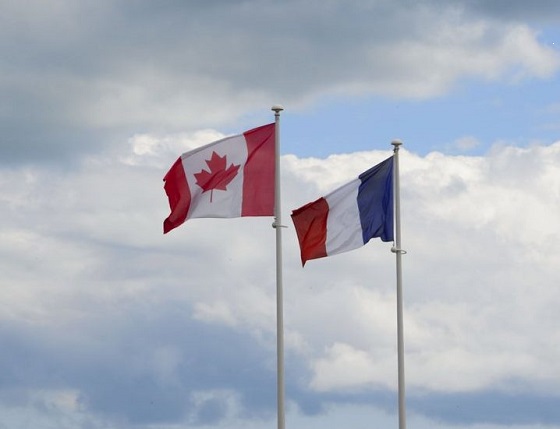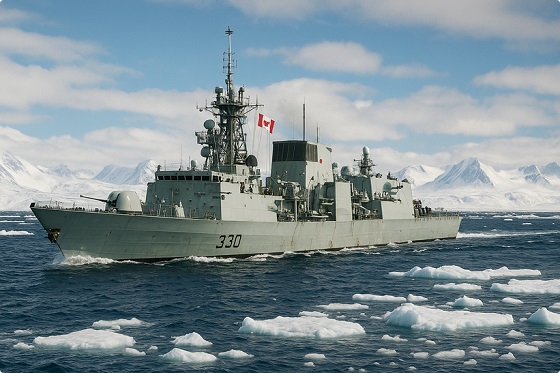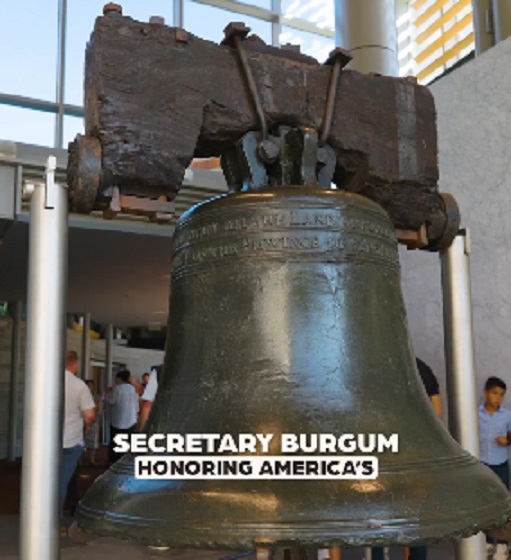Frontier Centre for Public Policy
Where was Canada’s Governor General on D-Day?

From the Frontier Centre for Public Policy
There really are non-partisan functions that need to be done by the representative of all Canadians, the Governor General, and not that of a self serving, partisan and narcissist politician in pursuit of photo-ops.
On D-Day June 6 Canada’s Governor General Mary Simon should have taken her rightful place. At ceremonies in France. But she wasn’t there. Instead, Prime Minister Justin Trudeau pushed her aside. As usual.
The D-Day landings may seem like ancient history even as June 6, 1944 was a defining day for Canada. But it’s important to recall that over 14,000 Canadians stormed Juno Beach, as part of the largest amphibious landing in history. More than 5,000 Canadian troops were killed and thousands more injured in the Battle of Normandy. While we celebrate the eventual defeat of Germany, we may also recall Winston Churchill’s saying we need to remember that there was a Germany before Hitler.
The military historian Basil Liddell Hart had a view of history that’s largely gone missing in the western democracies. Essential reading is his book, Why don’t we learn from history? He quoted the Roman historian Polybius: “There are two roads to the reformation of mankind—one through the misfortunes of their own, the other through the misfortunes of others; the former is the most unmistakable, the latter the less painful…we should always look out for the latter, for thereby we can, without hurt to ourselves, gain a clearer view of the best course to pursue… the knowledge gained from the study of true history is the best of all education for practical life.”
Arguably, the conflicts in Vietnam, Afghanistan, Iraq, Ukraine and Gaza could have been averted or could have evolved less disastrously by heeding the lessons of history—and, specifically, from history of the two World Wars. Undoubtedly, the mismanaged exit from Kabul emboldened President Putin. Disaster in Ukraine since the invasion of Crimea represents failure to heed the ancient principle, also from Roman times, If you want peace, prepare for war. There was no deterrent to the invasion of Ukraine. And the western democracies have consistently delivered far too little materiel and far too late.
There’s abject disrespect at the highest levels for truth and tradition, and the values that made of Canada a great country. I came across a phrase in news reports that made me shudder. The Governor General was relieved of her duties when it was she who should have hosted a state dinner for President Joe Biden in 2023. Prime Minister Trudeau had no business relieving her of her duties. He usurped her constitutional role.
The Governor General was also relieved of her duty to attend the D-Day ceremonies in France. Arguably, it was her job to unveil unveiled a statue commemorating Canada’s participation. In her capacity as Colonel-in-Chief of the Royal Regina Rifles, Princess Anne performed that ceremony. Fair enough. But as a minimum, the Governor General should have been there too. Instead, of course, Trudeau traveled to France after shunting the Governor General off to perform a token ceremony in New Brunswick.
My point is, there really are non-partisan functions that need to be done by the representative of all Canadians, the Governor General, and not that of a self serving, partisan and narcissist politician in pursuit of photo-ops.
Canadians don’t normally need to know that the British North America Act vests in the Governor General an ultimate duty to override political abuse. But that’s why King Charles’s representative signs legislation into law as well as other proclamations. That function, and the power to withhold it, is the last resort for maintaining the free and democratic society that Canada purports to be.
History tells of ultimate leaders who failed that duty to their people. In 1921, under pressure of riots, Italy’s King Victor Emmanuel III refused to declare a state of emergency and impose martial law. Instead he dissolved the parliament and asked Mussolini to take the power that evolved into his dictatorship. Similarly, in 1933 Germany’s ailing President Paul von Hindenburg signed into law the Enabling Act that empowered Hitler’s unbridled exercise of power.
D-Day reinforces this lesson from history, from two thousand years ago. The Roman political philosopher Cicero warned: “Though liberty is established by law, we must be vigilant, for liberty to enslave us is always present under that very liberty. Our constitution speaks of the people’s general welfare. Under that phrase all manner of excesses can be employed by lusting tyrants …”
In sum, it’s important to learn history and to maintain traditions. That includes having Governors General who insist on taking the lead role as Canada’s functional head of state—and, most importantly, not having politicians usurping the vice-regal role.
Colin Alexander’s degrees include Politics, Philosophy, and Economics from Oxford. His latest book is Justice on Trial: Jordan Peterson’s case shows we need to fix the broken system.
armed forces
Canada At Risk Of Losing Control Of Its Northern Territories

From the Frontier Centre for Public Policy
By Gerry Bowler
Canada has left the North wide open to foreign powers eager to grow their Arctic foothold
Canada is in danger of losing the Arctic because Ottawa has ignored the North for far too long.
The Canadian North makes up 40 per cent of our land mass and includes more than 19,000 islands in the Arctic Archipelago. Yet only about 120,000 people live across this enormous stretch of wilderness. Canada took control of the region in the late 19th century through territorial transfers from the Hudson’s Bay Company and the British Crown, one of the largest land transfers in history.
For decades afterward, the North received little federal attention. The Second World War briefly changed that, prompting construction of the Alcan Highway to Alaska and bringing new airfields and telephone lines.
The Cold War, along with the threat of Soviet bombers crossing the Pole, led to multiple radar lines. Still, Prime Minister St-Laurent admitted in the 1950s that Canadian governments had treated the North “in an almost continuing state of absence of mind.”
John Diefenbaker’s Progressive Conservative administration tried to reverse that neglect. In 1958, he told a Winnipeg audience: “I see a new Canada—a Canada of the North! … We intend to carry out the legislative program of Arctic research, to develop Arctic routes, to develop those vast hidden resources the last few years have revealed.”
Plans for a research and industrial city in Frobisher Bay, new roads and railway lines and wide-ranging surveys were ambitious but ultimately unaffordable. In the years that followed, both Liberal and Conservative governments again set northern development aside.
Foreign interest, however, continued to grow. The Canadian Security Intelligence Service recently reported Russian and Chinese attempts at influence and subversion in our northern territories.
American governments over the past 20 years have shown serious interest in the region’s resources, which include significant oil, gas and mineral deposits, along with control of the Northwest Passage, a shipping route becoming increasingly accessible as Arctic sea ice recedes.
Canada considers those waters national; the United States, the European Union and at times China argue it is an international strait.
For all practical purposes, Canada has what amounts to no meaningful presence north of the tree line, leaving the field open to countries with far more ambition and far better-equipped forces.
Canada is in no position to defend its claims. We have no icebreakers capable of operating through the Arctic winter. We have no submarines that can work under the ice cap. We have no permanent air base for fighter jets.
And to cover two million square kilometres of Arctic territory, we have only 300 troops stationed there. The chance they could detect, let alone repel, a serious intruder is essentially zero. Without these capabilities, Canada cannot properly monitor activity in the region or enforce its sovereignty claims.
In the last federal budget, Ottawa announced a $1-billion Arctic infrastructure fund for new airports, seaports and all-season roads. Our foreign affairs minister has urged NATO to pay more attention to the Arctic, saying it “must be an organization not only that focuses on the eastern flank, but also that looks north.”
These steps are gestures, not strategy. Canadian governments excel at promises but struggle with procurement, and the idea that European allies might fill the gap, considering their weak response to Russia’s assault on Ukraine, is unlikely.
Our northern territory is under threat. We must use it or lose it.
Gerry Bowler is a Canadian historian and a senior fellow of the Frontier Centre for Public Policy.
Crime
How Global Organized Crime Took Root In Canada

From the Frontier Centre for Public Policy
Weak oversight and fragmented enforcement are enabling criminal networks to undermine Canada’s economy and security, requiring a national-security-level response to dismantle these systems
A massive drug bust reveals how organized crime has turned Canada into a source of illicit narcotics production
Canada is no longer just a victim of the global drug trade—it’s becoming a source. The country’s growing role in narcotics production exposes deep systemic weaknesses in oversight and enforcement that are allowing organized crime to take root and threaten our economy and security.
Police in Edmonton recently seized more than 60,000 opium poppy plants from a northeast property, one of the largest domestic narcotics cultivation operations in Canadian history. It’s part of a growing pattern of domestic production once thought limited to other regions of the world.
This wasn’t a small experiment; it was proof that organized crime now feels confident operating inside Canada.
Transnational crime groups don’t gamble on crops of this scale unless they know their systems are solid. You don’t plant 60,000 poppies without confidence in your logistics, your financing and your buyers. The ability to cultivate, harvest and quietly move that volume of product points to a level of organization that should deeply concern policymakers. An operation like this needs more than a field; it reflects the convergence of agriculture, organized crime and money laundering within Canada’s borders.
The uncomfortable truth is that Canada has become a source country for illicit narcotics rather than merely a consumer or transit point. Fentanyl precursors (the chemical ingredients used to make the synthetic opioid) arrive from abroad, are synthesized domestically and are exported south into the United States. Now, with opium cultivation joining the picture, that same capability is extending to traditional narcotics production.
Criminal networks exploit weak regulatory oversight, land-use gaps and fragmented enforcement, often allowing them to operate in plain sight. These groups are not only producing narcotics but are also embedding themselves within legitimate economic systems.
This isn’t just crime; it’s the slow undermining of Canada’s legitimate economy. Illicit capital flows can distort real estate markets, agricultural valuations and financial transparency. The result is a slow erosion of lawful commerce, replaced by parallel economies that profit from addiction, money laundering and corruption. Those forces don’t just damage national stability—they drive up housing costs, strain health care and undermine trust in Canada’s institutions.
Canada’s enforcement response remains largely reactive, with prosecutions risk-averse and sentencing inadequate as a deterrent. At the same time, threat networks operate with impunity and move seamlessly across the supply chain.
The Edmonton seizure should therefore be read as more than a local success story. It is evidence that criminal enterprise now operates with strategic depth inside Canada. The same confidence that sustains fentanyl synthesis and cocaine importation is now manifesting in agricultural narcotics production. This evolution elevates Canada from passive victim to active threat within the global illicit economy.
Reversing this dynamic requires a fundamental shift in thinking. Organized crime is a matter of national security. That means going beyond raids and arrests toward strategic disruption: tracking illicit finance, dismantling logistical networks that enable these operations and forging robust intelligence partnerships across jurisdictions and agencies.
It’s not about symptoms; it’s about knocking down the systems that sustain this criminal enterprise operating inside Canada.
If we keep seeing narcotics enforcement as a public safety issue instead of a warning of systemic corruption, Canada’s transformation into a threat nation will be complete. Not because of what we import but because of what we now produce.
Scott A. McGregor is a senior fellow with the Frontier Centre for Public Policy and managing partner of Close Hold Intelligence Consulting Ltd.
-

 Business2 days ago
Business2 days agoBlacked-Out Democracy: The Stellantis Deal Ottawa Won’t Show Its Own MPs
-

 Alberta2 days ago
Alberta2 days agoPremier Danielle Smith says attacks on Alberta’s pro-family laws ‘show we’ve succeeded in a lot of ways’
-

 Agriculture1 day ago
Agriculture1 day agoHealth Canada pauses plan to sell unlabeled cloned meat
-

 Artificial Intelligence2 days ago
Artificial Intelligence2 days agoGoogle denies scanning users’ email and attachments with its AI software
-

 Alberta2 days ago
Alberta2 days agoNew pipeline from Alberta would benefit all Canadians—despite claims from B.C. premier
-

 Crime1 day ago
Crime1 day agoB.C.’s First Money-Laundering Sentence in a Decade Exposes Gaps in Global Hub for Chinese Drug Cash
-

 COVID-192 days ago
COVID-192 days agoCrown seeks to punish peaceful protestor Chris Barber by confiscating his family work truck “Big Red”
-

 International1 day ago
International1 day agoAmerica first at the national parks: Trump hits Canadians and other foreign visitors with $100 fee






